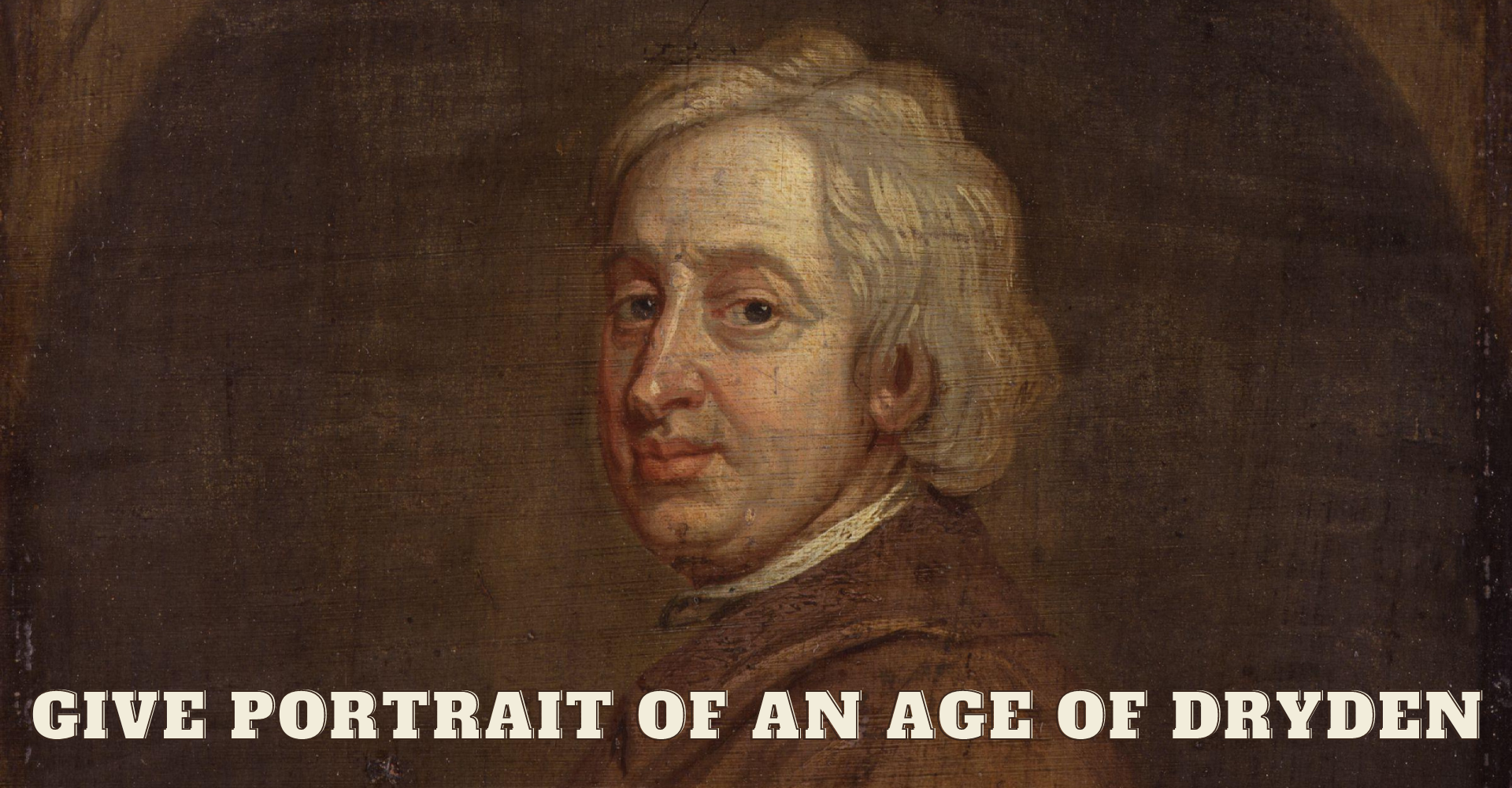It is generally agreed that for any just evaluation, the milieu of the writer has to be taken into account. “When we read the works of Dryden.” Writes David Nichol Smith, “We make a study of his Age. Most of his longer poem’s were inspired by political or religious controversy, and were intended to have an immediate influence on public opinion.” This is a significant statement in so far as it points to the clue to the study of Dryden, the poet. The Age of Dryden is one of the most fruitful periods of English literary history. Dryden always thought of his times as a period of construction and adjustment, and habitually spoke of it as the “New Age”.
The Historical Background: There are three major historical events, which have influenced the thought of the Age:
The Restoration (1660) :
The Convention Parliament, which consisted of moderate Roundheads of the Presbyterian Party with a strong admixture of Cavaliers, called back Charles. It from his exile in France and restored him to the throne of England in 1660. At this important crisis of the constitution, as CM. Trevelyan has pointed out. “It was not the King who summoned the Parliament, but the Parliament that summoned the King.” It is significant to note that monarchy had after a long interval been renewed in his person by the vote of the two Houses, as the result of general elections.
The Religious Question :
The second important event was the religious controversies of the Age. The religious settlement of the restoration. Was not conceived in the same spirit of compromise that marked the political and social settlement. The religion of the King was suspected. The brother of Charles II, who was the heir apparent, was an avowed Papist. There was a prevalent suspicion of Catholics. In 1678, a clergyman, named Titus Oates. Who figures prominently in Dryden’s Absalom and Achitophel as Corah, spread flies as to the criminal plots of the Roman Catholics to murder the King and restore Catholicism in England. The secret dealings of Charles II with the French King made the people really believe in Oate’s elaborate lies. Charles’s brother. James, was known to be an uncompromising Roman Catholic and the prospect of his accession terrified everyone. In such a world of cross currents, violence, persecution and universal suspicion raged. This gave rise to the massacre of the innocent Roman Catholics. Dryden himself fell a victim these religious hostilities. With the accession of James, Dryden had converted himself to the Roman Catholic faith. It was then, too that he continued to function as the Poet-Laureate, an honour bestowed upon him by Charles II. With the glorious revolution in 1688 and the subsequent accession of William of Orange to the throne, Dryden was mercilessly stripped off the Laureateship and was thrown into oblivion. Shadwell was made Poet-Laureate. Dryden, surely, must have felt humiliated at that.
The Glorious Revolution (1688) :
James succeeded to the thrown in 1685. Soon he revealed his Roman Catholic prejudices; for, James wanted the Parliament of 1685 to subject the Church and the country to Roman Catholicism. The quarrel on this issue between James and the Tory House of Commons was hastened by the rebellion of Monmouth. The Duke of Monmouth, a illegitimate son of Charles II, declared himself to be the rightful King of England and led a revolt against James. He was defeated at Sedgemoor and executed. The systematic violations of the loss of the country by James led to the ‘Glorious Revolution’ of 1688. James was deposed and replaced by the Protestant sovereigns, William of Orange and Mary.
The Social Aspects of the Age:
(i) The Plague of 1665 : Among the changes that took place in the life of ‘New Age’ is the great plague which swept London in 1665. Thomas Vincent gave a most impressive description of it: “The very sinking fears they (the people) have had of the plague brought the plague and death upon many souls; by the sight of a coffin in the streets they have fallen into a shivering and immediately the disease has assaulted them; and the Sergeant Death hath arrested them, and clapped to the doors of their houses upon them, from whence they have come forth no more till they have been brought to their graves.”
(ii) The Newspapers : The public needed a more potent medium for the dissemination of news and opinions. During the seventeenth century, London folk came slowly to understand that the newspaper, as Carlyle said, “is an open Forum where all mortals merit their opinions, state their grievances; a Forum free to every citizen who had three figures and a smattering of grammar.” J.R. Williams points out that Mercurius Gallolelgicus, a bound book written in Latin and printed at Cologne, published in 1594, probably suggested the title of many later London periodicals. In 1622, came a weekly pamphlet called Weekly shows. “There we have the evolution of the newspaper”.
PLEASE HELP ME TO REACH 1000 SUBSCRIBER ON MY COOKING YT CHANNEL (CLICK HERE)











